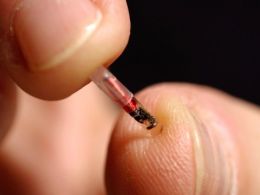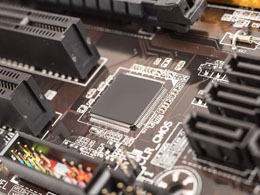
Future Shock? Device Allows You to Implant Cryptographic Keys under the Skin
Want to be a cyborg? Dangerous Things, a biohacking company, has developed a near-field communication (NFC) compliant chip that allows people to implant cryptographic keys under their skin, as reported by Motherboard. The chip is scheduled for release next year. Benefits Versus Privacy. Implantable chips are good for people who have trouble holding onto their keys, but they also brings privacy issues. The Dangerous Things prototype, called UKI, merges a person’s physical and digital identities. UKI can cryptographically prove what a person did and when, such as when they signed an email.....
Related News
Making a bitcoin payment with a body part may not be too unusual in the future. At this year’s Black Sea Summit in Kiev, an NFC, bio-implantable chip was demonstrated to attendees. The presentation of the Dangerous things xNT Implant showed how the product can store bitcoin keys and credit card data. Dangerous Things xNT Implant . When implanted under a....
Implantable NFC may soon enable Bitcoin users to store their wallet information beneath their skin and even make payments by just waving their hands. Bionics aren’t confined to Sci-fi movies anymore. As technology progresses, people may soon become part machines, thanks to various kinds of implants. While that day is still far away, a recent event in Ukraine gives a sneak peek into the future. A demonstration of the new ‘Dangerous Things’ xNT Implant at a conference was well received and covered by few media outlets as well. Dangerous Things xNT Implant is a bio-implantable NFC chip that....
In recent years, the rapid development of the cryptocurrency field has not only attracted many investors, but also spawned various innovative profit models. As a leading global blockchain technology solution provider, ION Mining recently launched a new way of cryptocurrency mining, claiming that users can earn up to $10,000 a day through cryptographic keys. This […]
Users storing bitcoin with hardware from a leading data protection company have been urged to update their devices or risk losing funds. In a company blog post on Friday, Gemini CSO Cem Paya released details of a vulnerability he encountered that allows attackers to brute-force secret keys from SafeNet's brand of hardware security modules, or 'HSMs'. These tamper-proof, specialist devices are used to safeguard all manner of cryptographic keys for the likes of governments, banks and payment companies. They've been hailed as the 'next step' for bitcoin security. While testing the SafeNet....
Law enforcement agencies and government organizations including the NSA could place trapdoors on millions of Diffie-Hellman-generated cryptographic keys to decrypt websites, applications, and encrypted messaging tools. It was revealed in a new study led by a team of University of Pennsylvania researchers. Since early 2000, the Diffie-Hellman (DH) key exchange has been considered as the backbone of many cryptographic systems due to its unique simultaneous key generation technique. During a DH exchange, two parties create a key together, which later can be used to encrypt the traffic.....





